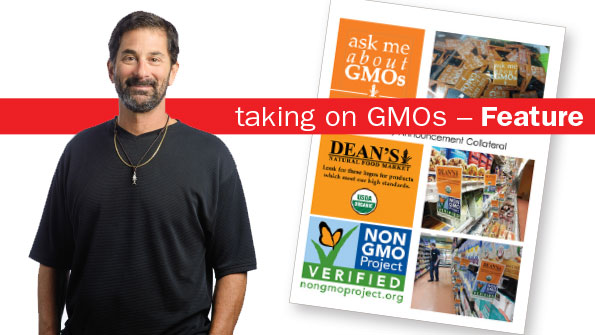Subscribe and receive the latest updates on trends, data, events and more.
Join 57,000+ members of the natural products community.
.png?width=700&auto=webp&quality=80&disable=upscale)
Without state or national rules for labeling genetically modified organisms in packaged foods, concerned retailers address the matter as they see fit for their customers. Here Natural Foods Merchandiser reviews the variety of approaches health foods stores take.
January 31, 2014

You May Also Like